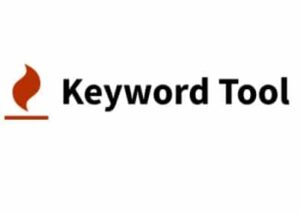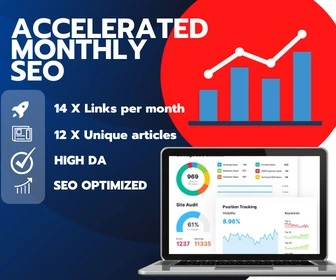Email marketing has been significantly influenced by Mailchimp, a leader in the field known for its user-friendly interface and wide array of features. However, recent pricing adjustments have raised concerns among users, prompting a surge in interest for affordable and efficient alternatives. Notably, Mailchimp’s pricing structure has undergone several changes, including increases in its standard plan and limitations in its free plan. This evolution has led businesses and digital marketers to explore other platforms that can provide comparable, if not superior, functionality without straining their budgets.
1. HubSpot: A Comprehensive Growth Platform
Another formidable competitor in the email marketing space is HubSpot, known for its comprehensive suite of marketing tools and its integrated CRM platform. This makes HubSpot an excellent option for enterprises seeking a holistic approach to marketing. HubSpot distinguishes itself with features that extend beyond email marketing, like a CRM-powered personalized email campaign capability and advanced marketing automation.
HubSpot’s Extensive Features
- Goal-based customizable email templates.
- Embedded A/B testing and optimal timing features for email sending.
- Quality assurance tools for cross-device email previews and tests.
- An insightful analytics dashboard.
- Free access to tools like signup forms, popups, and a landing page builder.
- A CRM that supports extensive segmentation criteria.
- Wide-ranging integrations and multilingual support, surpassing Mailchimp’s language options.
HubSpot’s Pricing Model
HubSpot offers a free plan covering a variety of marketing tools, allowing users to send up to 2,000 emails monthly. However, to harness the full power of HubSpot, especially for growth and scalability, businesses often need to invest in its paid plans, which start at $20/month for the basic package and escalate to $890/month for more comprehensive features.
Evaluating the Best Fit for Your Email Marketing Needs
When exploring alternatives to Mailchimp, the choice largely depends on your specific needs, budget constraints, and desired features. Moosend offers an appealing solution for those prioritizing cost-effectiveness without compromising on functionality. In contrast, HubSpot serves as a more expansive platform, suitable for enterprises seeking an all-encompassing marketing and CRM solution.
2. Omnisend an E-commerce Specialist
Omnisend has established itself as a potent alternative to Mailchimp, specifically honing in on the needs of eCommerce businesses. This targeted approach is both its strength and its unique selling proposition.
Specialization in eCommerce
What sets Omnisend apart in the crowded email marketing tools market is its sharp focus on eCommerce. By catering specifically to this segment, it offers tailored features such as popups, advanced customer segmentation, and marketing automation, which are crucial for online merchants. This specialization allows for a deeper understanding and servicing of eCommerce-specific marketing needs.
User Experience and Automation
A noteworthy aspect of Omnisend is its user-friendly interface, incorporating a drag-and-drop builder and ready-made templates. This approach lowers the entry barrier for users who may not be highly skilled in coding or design. Automation is another key feature, enabling personalized emails triggered by customer actions. This level of personalization is vital in eCommerce for fostering customer relationships and improving conversion rates.
Insightful Analytics
Omnisend’s robust analytics is a game-changer for merchants. Understanding customer behavior and campaign performance is crucial for refining marketing strategies. This data-driven approach helps in making informed decisions, a critical aspect for any successful eCommerce operation.
Pricing and Accessibility
The tiered pricing strategy, starting with a free plan, is an intelligent move. It provides an entry point for small businesses and a no-risk trial for larger businesses. However, the 250-contact limit in the free plan might be restrictive for some. The scaling of features and pricing with business growth makes Omnisend an adaptable choice.
3. Brevo (Formerly Sendinblue)
Brevo, known for its multifunctionality, merges email marketing with SMS campaigns and an array of marketing automation tools. It’s a platform that’s been designed with versatility in mind, appealing to businesses that require a broad spectrum of communication tools.
Features and Standout Qualities
Brevo’s prowess in transactional emails is a key differentiator. These emails, crucial for e-commerce confirmations, account updates, and other direct communications with customers, are handled with efficiency and reliability. The integration of SMS marketing broadens the outreach capabilities of businesses, providing an immediate and direct channel to engage customers. This is complemented by the platform’s CRM integration, allowing businesses to manage customer relationships seamlessly. This integration is a crucial feature, as it streamlines the process of tracking customer interactions and leveraging this data for more targeted marketing campaigns.
Another notable aspect of Brevo is its marketing automation suite, which is intuitive yet powerful. This suite enables businesses to set up automated workflows that respond to customer behaviors, thereby enhancing engagement and personalizing the customer experience.
Pricing
Brevo’s pricing structure is particularly beneficial for businesses with extensive email lists but who send emails less frequently. By charging based on the volume of emails rather than the number of subscribers, Brevo offers a cost-effective solution for businesses that do not need daily or high-frequency email campaigns. The free plan, with a daily limit of 300 emails, is an excellent starting point for small businesses or those new to email marketing, allowing them to scale up as their needs grow.
4. GetResponse
GetResponse positions itself as an affordable and feature-rich alternative, appealing to those looking for value for money.
Customization and Ease of Use
The highlight of GetResponse is its customization capabilities. The ability to create a unique brand tone aligns well with the needs of businesses striving for brand consistency. The platform’s user-friendly nature, with its responsive design and intuitive email builder, facilitates ease of use.
Feature-Rich Offering
Offering a wide range of features like A/B split testing, app integrations, advanced segmentation, and a CRM system, GetResponse stands as a comprehensive tool. However, the unavailability of certain features across all plans can be a drawback for some users.
Pricing for Different Business Sizes
The tiered pricing model, starting from a free plan, caters to various business sizes, which is a strategic move. The option for small businesses to start with a lower-tier plan and scale as needed is an attractive feature.
5. Constant Contact: A Comprehensive Solution for Government and Education
Constant Contact stands out as a formidable Mailchimp alternative, particularly for government and educational sectors. Its approach to user education through webinars and courses is commendable, showing a commitment to not just provide tools, but also empower users with knowledge on how to effectively utilize these tools. This aligns well with the needs of government and education sectors, where clarity and ease of use are often prioritized.
User-Friendly Features and Social Media Integration
One of the standout aspects of Constant Contact is its array of user-friendly features. The platform’s email templates, learning material, contact management tools, and customer support are tailored to elevate the performance of small-to-medium enterprises. Particularly noteworthy is its social media integration and event management tools, which simplify the promotion of events like webinars and conferences. The inclusion of a mobile app further enhances its utility, allowing users to manage their email marketing campaigns on the go.
Flexible Pricing with a Focus on Scalability
Constant Contact’s pricing model is tailored to scale with a business’s growth. The absence of a free plan might seem like a drawback at first glance. However, the 60-day free trial provides ample time for businesses to assess the platform’s suitability. The pricing structure, based on the number of contacts and emails sent, is a thoughtful approach, allowing businesses to scale their operations without immediate financial pressure.
6. Moosend: A Cost-Effective and Feature-Rich Alternative
Moosend emerges as a prominent competitor, offering a more budget-friendly solution while maintaining a suite of features comparable to Mailchimp. Its pricing model, starting at $9/month for 500 subscribers, is particularly attractive for small to medium businesses, startups, e-commerce entities, and bloggers. The platform boasts a drag-and-drop email builder, advanced segmentation capabilities, and a revamped user interface that prioritizes speed and ease of use. The key selling point of Moosend lies in its value proposition; it provides more than a 45% cost saving compared to Mailchimp, making it a practical choice for those seeking robust functionality at a lower price point.
Moosend’s Distinctive Features and Pricing Structure
Moosend offers an impressive array of tools that enhance the user experience and the effectiveness of email marketing campaigns. These include:
- A powerful drag-and-drop editor paired with versatile email templates.
- Effective lead generation through diverse sign-up form options.
- Enhanced open rates and click-through rates via detailed list segmentation.
- Automation features that streamline repetitive tasks.
- An intuitive landing page builder.
- Real-time analytics to measure and optimize campaign performance.
- Seamless integration with popular apps and services.
7. MailerLite: The SME and Online Media Champion
MailerLite emerges as a strong contender in the email marketing software space, particularly for small and medium enterprises (SMEs) and online media. Its simplicity and array of features, like newsletter templates and customer support, make it an attractive choice for businesses looking to grow their email list and enhance their marketing efforts.
Diverse Functionalities and Customer Support
MailerLite’s arsenal of features, including a landing page builder, pop-ups, embeddable web forms, and email automation tools, provide a comprehensive toolkit for email marketing. The platform’s emphasis on customer service, especially for premium plans, is a significant advantage, ensuring users have the support they need to navigate its various features effectively.
Cost-Effective Solutions for Growing Businesses
In terms of pricing, MailerLite offers exceptional value, particularly with its free plan for SMEs with up to 1,000 subscribers. The tiered pricing model, based on the number of subscribers, makes it a financially viable option for businesses with varying sizes and needs. The platform’s focus on email deliverability at a reasonable price point further solidifies its position as a practical choice for budget-conscious businesses.
8. Mailjet: A Versatile Tool for Internet/SaaS Businesses
Mailjet presents itself as a versatile tool, particularly suited for Internet or SaaS businesses. Its emphasis on real-time analytics, ease of use, and email template offerings positions it as an accessible choice for beginners and experienced marketers alike. However, the branding on email templates in the free plan could be a drawback for some users.
Advanced Features and Team Support
Mailjet offers advanced features such as email automation, tracking tools, and SMS marketing. The inclusion of a team of delivery experts to support customers is a unique feature that sets Mailjet apart, providing users with valuable expertise. The platform’s ability to track user behavior and compare campaigns offers critical data for assessing the success of marketing efforts.
Flexible Pricing with Considerations
Mailjet’s “pay-as-you-grow” pricing model is an attractive feature for businesses scaling their operations. The free plan, although limited, is a great starting point for small-scale needs. It’s important to note that advanced features like A/B testing and segmentation are reserved for premium tiers, which could influence the decision-making of potential users.
9. AWeber: Tailored for Marketers and Advertisers
AWeber positions itself as a go-to option for marketers and advertisers. It offers a suite of tools designed to enhance personalization in email marketing and effective audience targeting. Its integrations with eCommerce platforms and testing options make it particularly suitable for businesses looking to build sustainable customer relationships and boost conversions.
Engaging and Insightful Features
AWeber’s strengths lie in its autoresponders, template library, and email marketing analytics. These features enable businesses to engage users effectively and gain valuable insights from their campaigns. The availability of a mobile app is a thoughtful addition, allowing for on-the-go campaign management. However, it’s worth noting the potential difficulty in data importing, which may require consideration in certain use cases.
Flexible and Accessible Pricing
AWeber’s pricing, while starting at a higher point than some competitors, offers unlimited subscribers even in its entry-level plan. The free plan, though limited, provides a taste of the platform’s capabilities. The platform’s flexible billing options, including quarterly and annual plans, cater to different budgetary needs and preferences, adding to its appeal.
10. Benchmark Email
Benchmark Email stands out in the email marketing field due to its international focus and multilingual support. This global orientation makes it a preferred choice for businesses that operate across different countries and cater to a diverse audience.
Features and Standout Qualities
One of the key strengths of Benchmark Email is its extensive collection of responsive email templates that are designed to work seamlessly across different devices and email clients. This is particularly important in today’s mobile-centric world. Additionally, the platform offers comprehensive reporting tools that provide deep insights into the performance of email campaigns, helping businesses to fine-tune their strategies for better engagement.
The multilingual support offered by Benchmark Email is another significant advantage. By accommodating various languages and cultural nuances, the platform ensures that businesses can effectively communicate with a global audience. This capability is essential for companies looking to expand their reach and engage customers in different regions without language barriers.
Pricing
Benchmark Email’s pricing structure is designed to be competitive and accessible. With a free plan available for basic needs, it caters to small businesses or those just starting with email marketing. The paid plans, starting at $13.99 per month, offer more advanced features and cater to larger subscriber lists, making Benchmark Email a viable option for businesses as they grow and expand into new markets, especially those targeting a global audience.
11. Campaign Monitor for Aesthetics
Campaign Monitor is renowned for its focus on design and aesthetics in email marketing. The platform targets businesses and marketers who value visually appealing emails and user-friendly design tools.
Features and Standout Qualities
The standout feature of Campaign Monitor is its drag-and-drop email builder coupled with a range of beautifully crafted templates. This design-centric approach ensures that even those without technical expertise can create professional and visually striking emails. The emphasis on aesthetics does not come at the expense of functionality; Campaign Monitor also offers powerful automation tools that enable businesses to set up effective email sequences based on user behavior and preferences, thus personalizing the customer journey.
Pricing
The pricing model of Campaign Monitor is tailored to cater to a broad range of business sizes and requirements. Starting at $9 per month, it offers various tiers based on the features included and the volume of subscribers. This tiered approach allows businesses to choose a plan that aligns with their specific needs and budget, providing the flexibility to upgrade as their email marketing strategies evolve.

12. ActiveCampaign
ActiveCampaign stands out in the market by seamlessly integrating email marketing, marketing automation, and CRM tools. It’s designed to create a unified experience, enhancing both marketing efficiency and customer engagement.
Features and Standout Qualities
The platform’s strength lies in its advanced automation capabilities, which go beyond standard email marketing practices. ActiveCampaign utilizes machine learning to optimize email sending times and content, ensuring higher engagement rates. Its predictive features are particularly effective in anticipating customer needs and behavior, leading to more timely and relevant communication.
The integration of a CRM system is a major advantage, especially for sales-driven organizations. This integration allows for a unified approach to managing customer interactions across marketing and sales, fostering better alignment and efficiency.
Pricing
ActiveCampaign’s pricing model starts at $9 per month for up to 500 subscribers, making it accessible for small businesses or those just starting with email marketing. As the number of subscribers increases, so does the pricing, but this is matched with an expanded access to more sophisticated features. This scalability makes ActiveCampaign a viable option for growing businesses that need to expand their email marketing capabilities in tandem with their subscriber base.
13. ConvertKit Simplicity for Content Creators
ConvertKit specifically caters to the unique needs of content creators and bloggers. This platform emphasizes simplicity in its design and functionality while providing powerful integrations with various creator-focused tools, making it a go-to choice for this niche market.
Features and Standout Qualities
The intuitive interface of ConvertKit is a major draw, especially for those who may not have extensive technical expertise. This ease of use doesn’t compromise on functionality; the platform offers robust automation capabilities that simplify complex email marketing tasks. ConvertKit’s direct integration capabilities with platforms like Patreon and WordPress are particularly beneficial for creators who rely on these platforms for their content distribution and monetization. This integration streamlines the process of connecting with their audience and managing different aspects of their online presence.
Another highlight is ConvertKit’s targeted approach towards content creators. By focusing on this particular audience, the platform is able to offer more specialized solutions, such as templates and automation workflows, that are specifically designed to meet the needs of bloggers, artists, and digital creators.
Pricing
Starting at $29 per month for up to 1,000 subscribers, ConvertKit positions itself as a premium service. This pricing reflects its specialized focus and advanced features tailored to individual creators and small businesses who seek a more personalized and effective email marketing tool.
14. Emma
Emma stands out in the digital marketing arena for its high-quality designs and cutting-edge automation features. The platform is specifically designed to cater to the needs of mid-size businesses and marketing agencies seeking sophisticated email marketing tools.
Features and Standout Qualities
At the heart of Emma’s appeal is its exceptional email automation capability, which allows for intricate and responsive email campaigns. The platform is also equipped to create dynamic content that adapts to user interactions, enhancing the relevance and engagement of emails. One of Emma’s most lauded attributes is its design toolkit. This toolkit is engineered for ease of use without compromising on the ability to produce visually stunning email designs. These features collectively make Emma a powerful ally in crafting effective and attractive email marketing campaigns.
Pricing
Emma’s pricing strategy is designed to be flexible, catering to a variety of business needs. The pricing tiers begin with Emma Lite, priced at $99 per month, which is suitable for up to 10,000 contacts. This plan is ideal for smaller businesses or agencies beginning to scale their operations. For larger organizations or those requiring more comprehensive features, Emma for Teams is available at $249 per month. This plan offers expanded functionalities ideal for collaborative work environments and larger-scale marketing efforts.
15. iContact
iContact is tailored for businesses seeking a direct and efficient email marketing solution, particularly resonating with small to medium-sized businesses. The platform’s design emphasizes simplicity and effectiveness, eliminating the common complexities associated with email marketing.
Features and Standout Qualities
iContact is characterized by its user-friendly email editor, which allows for the swift creation and deployment of email campaigns. This ease of use is complemented by thorough analytics and reporting capabilities, providing valuable insights into campaign performance. Furthermore, iContact prides itself on its responsive customer support, ensuring that users receive the assistance they need promptly. This combination of simplicity, effectiveness, and support makes iContact an appealing choice for businesses looking for a hassle-free email marketing platform.
Pricing
iContact’s pricing model is designed to be accessible to a wide range of businesses, starting with a complimentary plan for up to 250 contacts. This makes it an attractive option for small businesses or those just starting with email marketing. As the subscriber list grows, the pricing scales to accommodate larger audiences, with $14 per month for 750 contacts and reaching up to $95 per month for 10,000 contacts. This tiered pricing system ensures that businesses only pay for what they need, making iContact a cost-effective solution for varying business sizes and marketing needs.









